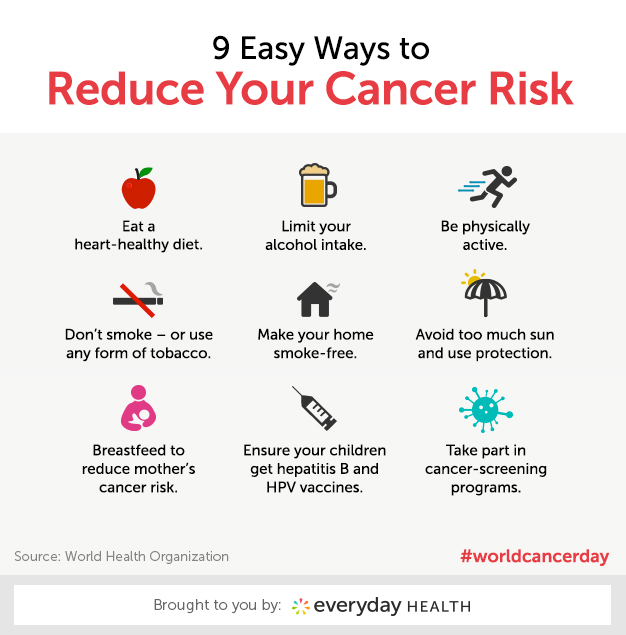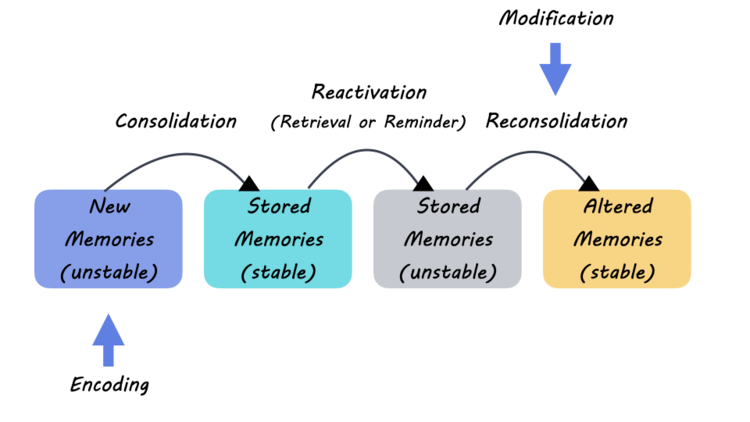Cancer risk reduction is at the forefront of public health research, advocating for effective strategies to lower the prevalence of this devastating disease. As researchers like Karen Emmons at Harvard focus their efforts on innovative approaches, the importance of federal grant applications becomes increasingly evident. These grants not only support projects aimed at improving our understanding of nutrition and human reproduction but also enable scientists to tackle the science funding challenges that hinder progress. The ongoing battle for resources underscores the need for a robust commitment to public health initiatives that can yield long-term benefits for communities. By enhancing knowledge and awareness of cancer risk factors, these studies pave the way for healthier lives and reduced healthcare costs for future generations.
The quest for cancer prevention strategies encompasses a broad array of public health initiatives focused on lowering the incidence of this pervasive illness. Researchers in academia, particularly those at prestigious institutions like Harvard, are leveraging federal funding to explore new avenues for enhancing human health. Efforts to secure research grants reflect the need for sustainable science funding that addresses pressing health concerns related to nutritional influences and overall well-being. This investment not only paves the way for groundbreaking discoveries but also reinforces the integration of science into practical solutions for communities at risk. Ultimately, reducing the likelihood of cancer through informed public health policies is essential for improving population wellness over the long haul.
Understanding Cancer Risk Reduction Strategies
Cancer risk reduction is paramount in contemporary public health research, particularly within the fields of epidemiology and behavioral sciences. For researchers like Karen Emmons at Harvard T.H. Chan School of Public Health, identifying and implementing effective strategies to mitigate cancer risk in under-resourced communities is not only an academic pursuit but a moral imperative. The comprehensive methods they employ range from community engagement to health education, all aimed at instilling preventive measures and encouraging healthy lifestyle choices to decrease cancer prevalence and improve overall public health outcomes.
Effective cancer risk reduction strategies also involve leveraging insights from nutrition and human reproduction. Recent studies indicate that diet significantly influences cancer susceptibility; thus, obtaining federal grant funding often supports pioneering research that explores the complex interactions between diet, reproduction, and cancer risk. This holistic approach ensures that efforts to reduce cancer incidence are evidence-based, taking into consideration socioeconomic factors that contribute to disparities in health outcomes.
Navigating Science Funding Challenges in Public Health Research
In the realm of public health research, navigating science funding challenges is crucial for continued innovation and impact. The landscape for federal grant applications has become increasingly competitive, with researchers vying for limited funds while addressing pressing health concerns. These challenges have only been exacerbated by recent political climate shifts, such as funding freezes that hinder significant public health research initiatives. Understanding these dynamics is essential for both new and seasoned researchers aiming to secure funding for their crucial studies.
Moreover, researchers need to develop robust proposals that effectively communicate their research’s significance and potential impact. This translates into thorough preparation that includes detailed budgeting, comprehensive methodologies, and a clear articulation of how the proposed research addresses existing public health gaps. By focusing on concise yet compelling narratives in their applications, researchers greatly enhance their chances of receiving support, which is vital for addressing challenges faced by populations affected by diseases like cancer.
The Importance of Collaboration in Public Health Research
Collaboration is a cornerstone of successful public health research, particularly when preparing for federal grant applications. Researchers like Jorge Chavarro emphasize the importance of building partnerships with community organizations and other academic institutions. By working together, they can pool resources, share insights, and ultimately strengthen their grant proposals. This collaborative approach is vital in addressing health disparities and facilitating innovative research outcomes.
Additionally, collaborative efforts extend beyond organizational partnerships to include interdisciplinary teams. By integrating diverse expertise—from nutrition to behavioral sciences—researchers can devise comprehensive interventions that address complex health issues holistically. This is particularly significant in cancer risk reduction strategies, which often require multifaceted approaches that not only consider biological factors but also societal influences impacting health behaviors.
Building Long-lasting Relationships for Effective Research
Establishing and maintaining long-lasting relationships with community partners is integral to effective public health research. For researchers like Emmons, this relationship-building is a precursor to successful federal grant applications, as it provides a foundational understanding of the specific needs and challenges faced by target communities. These relationships often yield invaluable insights that inform research design and implementation, ensuring that studies are relevant and impactful.
Furthermore, fostering these partnerships can enhance participant recruitment and engagement in research studies, a crucial element in ensuring ethical practices and securing funding. Effective communication and trust between researchers and community members can lead to better data collection methods and higher participation rates, ultimately strengthening the research’s findings and its potential for real-world application.
The Role of Nutrition in Human Reproduction and Health
The study of nutrition in the context of human reproduction is rapidly gaining traction, particularly as more evidence emerges linking dietary habits to reproductive health outcomes. Jorge Chavarro’s research underscores the significant role that nutrition plays in fertility and other reproductive processes. Understanding these complex interrelationships not only aids in cancer risk reduction but also promotes healthier reproductive outcomes for future generations.
Moreover, addressing nutritional factors is critical in public health initiatives aimed at preventing diseases like cancer. A focus on proper nutrition can lead to improved reproductive health, ultimately contributing to a decrease in cancer incidence attributed to lifestyle factors. This intersection of nutrition, human reproduction, and public health underscores the need for interdisciplinary research approaches that can propel forward both scientific knowledge and community health practices.
Emphasizing Ethical Research Practices in Grant Applications
Adhering to ethical standards in research is non-negotiable, particularly for studies involving human participants. Federal grant applications require comprehensive documentation of ethical considerations and the protection of research subjects. Researchers like Karen Emmons have to ensure that their applications meet rigorous ethical guidelines set forth by review boards, reflecting a deep commitment to responsible research practices.
Furthermore, the ethical treatment of participants not only aligns with federal regulations but also builds trust within communities. By prioritizing ethics, researchers demonstrate their dedication to the populations they study, fostering relationships that are essential for successful implementation of public health initiatives. This ethical foundation also enhances the credibility of research proposals, making them more appealing to granting agencies.
The Future of Public Health Research Funding
Looking forward, the landscape of public health research funding is at a crossroads, requiring adaptability and innovation from researchers. As funding sources evolve, those seeking grants must stay informed about shifts in federal policies and areas of interest for funding bodies. The dynamic nature of science funding challenges necessitates that researchers continuously refine their proposals, addressing evolving public health priorities.
Moreover, advocacy for increased research funding is crucial to ensuring that significant public health challenges—such as cancer—are addressed effectively. Collaborative efforts among researchers, public health advocates, and policymakers can steer discussions towards the importance of investing in public health research, highlighting its potential to enhance community wellness and reduce healthcare costs. A unified voice advocating for science funding can help secure the necessary resources to push innovative cancer risk reduction strategies and other essential health interventions forward.
The Significance of Pilot Studies in Research Design
Pilot studies play a crucial role in the research design process, particularly in public health studies focused on cancer risk reduction. These preliminary investigations allow researchers like Emmons to test the feasibility of their methodologies and refine their approaches before committing to full-scale studies. By conducting pilot research, scientists can identify potential challenges and adjust their strategies, ultimately enhancing the quality of their federal grant applications.
Incorporating findings from pilot studies into grant proposals not only demonstrates the project’s viability but also provides preliminary data that can strengthen the case for funding. Funding agencies typically look for evidence of a study’s potential impact, and successful pilot studies can indicate the likelihood of meaningful results. As public health research continues to evolve, the importance of pilot studies in securing funding and driving innovation cannot be overstated.
Harnessing Community Engagement for Public Health Success
Community engagement is essential for the success of public health initiatives and research. Effective engagement fosters a two-way dialogue between researchers and community members, allowing for the identification of specific health needs and priorities. For cancer risk reduction studies, this engagement can ensure that interventions are culturally relevant and tailored to the unique challenges faced by diverse populations.
Moreover, community involvement enhances the authenticity of research efforts, often resulting in more accurate data collection and better participant retention rates. As researchers endeavor to secure federal funding, demonstrating strong community ties can serve as a valuable asset, highlighting the relevance and potential impact of their work. Engaging communities in the research process can lead to long-lasting improvements in public health outcomes, making it a critical component of effective research design.
Frequently Asked Questions
What are the most effective strategies for cancer risk reduction in communities with limited resources?
Strategies for cancer risk reduction in under-resourced communities typically include increasing access to preventive healthcare, promoting healthy nutrition, and engaging in public health research. By fostering partnerships with community organizations, public health researchers like Karen Emmons can implement tailored programs that educate individuals about cancer risks and promote healthier lifestyle choices, ultimately aiming to decrease cancer incidence in these populations.
How does public health research contribute to cancer risk reduction initiatives?
Public health research is essential for identifying the links between lifestyle factors and cancer risk, thus informing effective cancer risk reduction initiatives. Through rigorous studies, researchers can analyze patterns, evaluate interventions, and provide evidence-based recommendations that guide policies and community programs aimed at lowering cancer rates.
What role does nutrition play in cancer risk reduction and human reproduction?
Nutrition is a critical factor in cancer risk reduction and human reproduction. Research by experts like Jorge Chavarro highlights that proper nutrition can lead to better reproductive health outcomes and lower cancer risks. Insights from studies on nutrition and its impact on human reproduction help shape public health guidelines that encourage healthy dietary practices as part of cancer prevention.
What challenges do researchers face when applying for federal grants for cancer risk reduction studies?
Researchers seeking federal grant funding for cancer risk reduction studies often encounter science funding challenges such as competition, stringent evaluation processes, and budget constraints. The National Institutes of Health emphasizes innovation and evidence-based methodologies, which can make securing funding for cancer research highly competitive, with only a fraction of proposals receiving support.
How does the success rate of federal grant applications impact cancer risk reduction efforts?
The low success rate of federal grant applications, such as the 14.6 percent for National Cancer Institute R01 grants in 2023, significantly impacts cancer risk reduction efforts. With limited funding available, many innovative cancer research projects may be left unfunded, hindering advancements in public health strategies designed to lower cancer incidence and improve community health outcomes.
What is the importance of community partnerships in cancer risk reduction research?
Community partnerships are vital for effective cancer risk reduction research as they facilitate collaboration between researchers and local organizations. These partnerships help ensure that studies address specific community needs, enhance participant engagement in research, and increase the relevance and applicability of findings in real-world settings.
How can individuals contribute to cancer risk reduction in their own lives?
Individuals can contribute to cancer risk reduction by adopting healthy lifestyle choices, such as maintaining a balanced diet rich in fruits and vegetables, engaging in regular physical activity, avoiding tobacco use, and participating in cancer screening programs. Educating themselves about cancer risks and advocating for public health initiatives can also help drive community efforts toward lower cancer rates.
| Key Point | Details |
|---|---|
| Grant Importance | Federal grants are critical for public health research and can enable researchers to help communities. |
| Research Focus | Karen Emmons studies strategies to reduce cancer risk, while Jorge Chavarro researches nutrition and human reproduction. |
| Funding Process | The NIH demands thorough applications which often take significant time to prepare, and only a fraction of proposals receive funding. |
| Community Engagement | Building relationships with community partners and being innovative are crucial for effective research. |
| Public-Private Partnership | The collaboration between government and universities is essential for advancing health and reducing costs through research. |
| Funding Challenge | Researchers face a competitive funding landscape with low success rates for grant applications, particularly at institutions like the National Cancer Institute. |
Summary
Cancer risk reduction is critical in public health, as it involves strategic research and community engagement to promote healthier lifestyles. Researchers like Karen Emmons emphasize the importance of receiving federal grants to support innovative studies that can significantly impact under-resourced communities. Despite facing funding challenges, the collaboration between public institutions and researchers persists, underscoring a collective commitment to enhance human health and lower the costs associated with cancer treatment.




